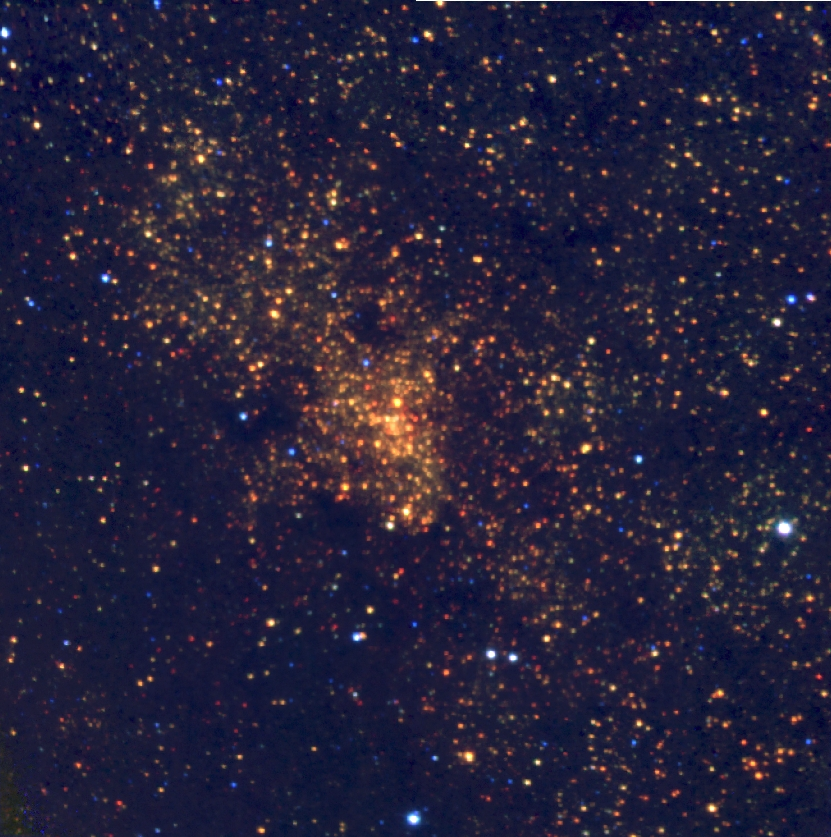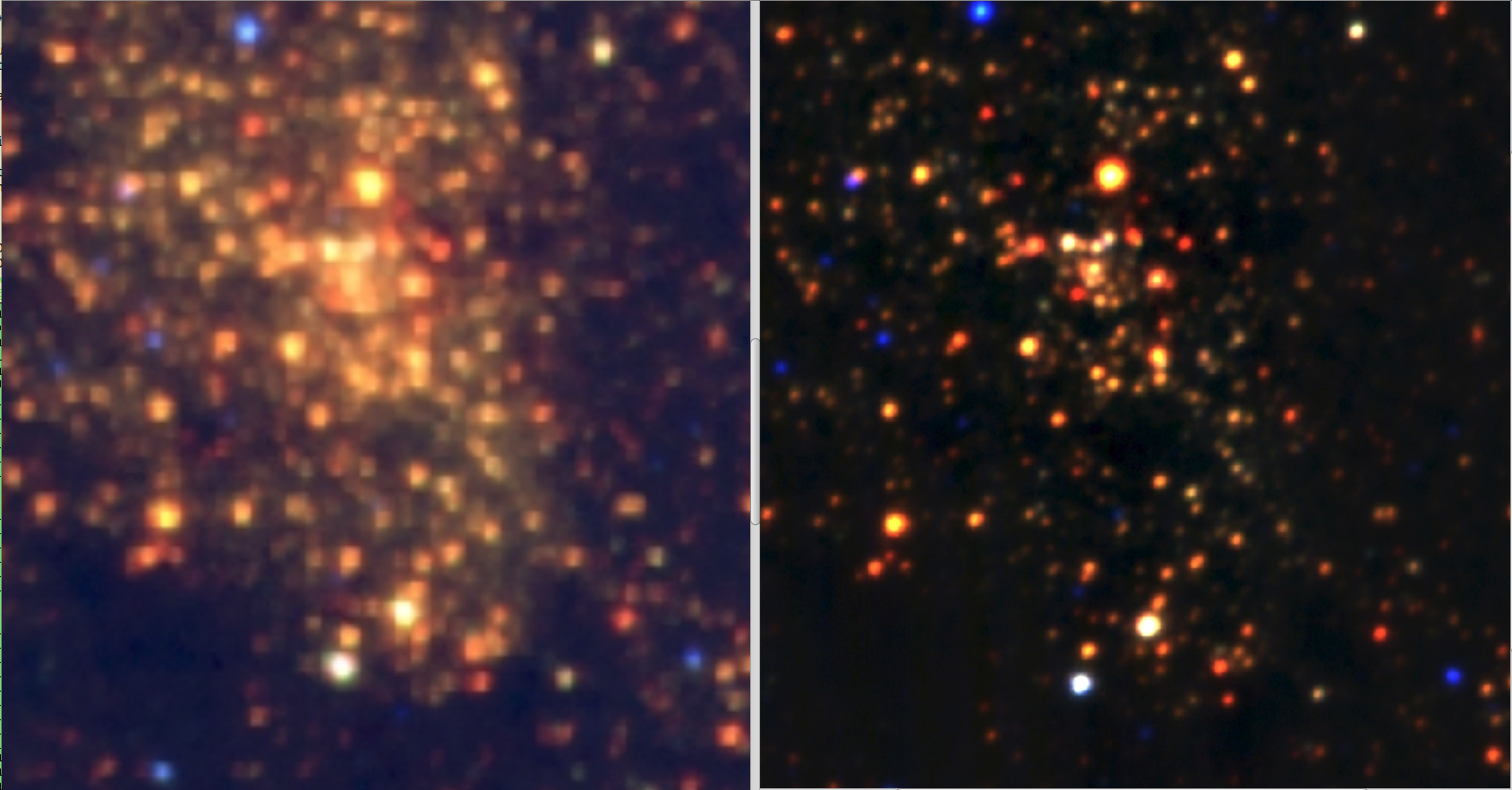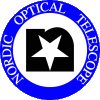NOTCam WF and HR camera images of the Galactic Centre
WF-Cam 4' FOV JHKs

WF (0.234"/pix) zoom vs. HR (0.079"/pix)

Comparison of the central 80'' region with the two different spatial resolutions of NOTCam. Data from April 2016.
NOTCam WF-camera images (New Science Array, 2007)
The Ring Nebula M57



First and Second: RGB coded image using J-band (blue), H-band (green), and narrow-band filter
#218 centred on H2 v=1-0 S(1) at 2.121 micron (red). (The same image is
shown to the left and in the middle with two different cuts.) The images
were obtained 17/4-2008
using beam-switch mode with 6 ON and 6 OFF target observations of 60 seconds
each, i.e. 360 seconds on-source per filter. The WF-camera (0.234"/pix) was
used and the FOV after trimming the dithered images is 3.5' x 3.2'. North is
up and East is left. The images were reduced using the quick-look reduction
script for beam-switch observations in the IRAF package notcam.cl.
Third: Combined ALFOSC and NOTCam image using H-alpha (blue),
J (green) and 2.122 micron H2-line (red). H-alpha image taken by S. Niemi.
NOTCam HR-camera images (Eng. grade Array)
The Globular Cluster NGC 4147 (60"x60" central part).



First: NOTCam HR-camera H-band image.
Second: 2MASS H-band image.
Third: VIMOS V-band image (from Stetson, Catelan, & Smith 2005, PASP, 117, 1325).
The NOTCam HR-cam H-band image is a combined image of 9 dithered frames, each with
an integration time of 21.6 sec using the ramp-sampling readout mode (frame 3.6 6),
amounting to a total of 194.4 seconds on-source integration time. The 9 raw images
are bad pixel corrected, skysubtracted, flat field corrected, shifted and combined.
The seeing in the combined image has a FWHM = 0.44" and the ellipticity of stars is
typically 0.02 to 0.05 all over the FOV. The pixel scale is 0.078"/pix.
NOTCam WF-camera (Science Grade Array)

Jan-14 2006: First technical night on the sky with the
Science Grade Array after installation
in October 2005.
JHKs image of Dolidze 25 (RGB coded with Ks red, H green, and J blue).
North up and East left. Each filter is a combination of 162 images of
6 s exposure each (to avoid saturation of K=9.5 mag stars). Sky
subtraction and flat fielding. No correction for image distortion made.
This is why stars are somewhat elongated in the corners and colours
don't quite overlap. The seeing in the combined image is 0.8" FWHM. A
rectangular zoom of the central region is seen below. The sensitivity
is measured to be around K=19 with S/N=8 in 972 seconds.

Engineering grade array images from 2001

K-band image of V361 Cep (6/9-2001). WF Camera. North up and East
left. The FWHM of the PSF is 0.55 arc seconds. The brightest targets are
saturated. Exposure time is 50s x 6 = 300s. No bad-pixel removal or
correction of bad columns, only dedicated sky subtraction and flat fielding.

J-band image of V673 Cas (6/9-2001). This is a 32" x 37" section
of a WF image with north up and east left, Total exp time is 25s x 14 =
350s. The FWHM measured on stars is 2.2 pix or 0.5", and the double star
close to the Northern edge is separated by 0.7".
Comments to Anlaug Amanda Djupvik
|












